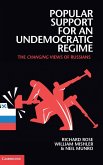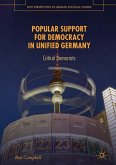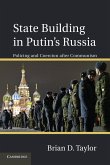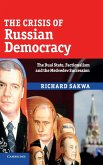To survive, all forms of government require popular support, whether voluntary or involuntary. Following the collapse of the Soviet system, Russia's rulers took steps toward democracy, yet under Vladimir Putin Russia has become increasingly undemocratic. This book uses a unique source of evidence, eighteen surveys of Russian public opinion from the first month of the new regime in 1992 up to 2009, to track the changing views of Russians. Clearly presented and sophisticated figures and tables show how political support has increased because of a sense of resignation that is even stronger than the unstable benefits of exporting oil and gas. Whilst comparative analyses of surveys on other continents show that Russia's elite is not alone in being able to mobilize popular support for an undemocratic regime, Russia provides an outstanding caution that popular support can grow when governors reject democracy and create an undemocratic regime.
'Popular Support for an Undemocratic Regime is a sophisticated examination of a fundamental question facing analysts of Russian politics, and indeed of other semi-authoritarian systems: what happens when the rulers supply the regime that the people are asked to support? This book is essential reading for all those in comparative politics concerned with the persistence of undemocratic regimes.' Richard Sakwa, University of Kent








